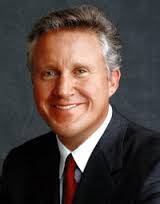Maria Jose Tonelli, Vice Director of FGV EAESP in Brazil and Joao Lins, a partner at PwC in Brazil both gave a lecture on the state of higher education and the business environment in Latin America at the EFMD 2013 Annual Conference.
It is a challenging task to talk about Latin America, as the country does not offer a homogeneous business environment. There are many differences between and amongst Latin American countries, such as language (Portuguese in Brazil versus the rest of the countries speaking mainly Spanish), multinational organizations, and country-specific political and economic agreements that may exclude other Latin American countries, such as Mercosur. Income differences play another huge role. As a whole, Latin America has had positive economic growth leading up to 2013, though not significantly so, with growing employment. However inequalities within countries remains large, and while Chile has the best quality of life at the moment, it is only 40th in the world.
The emergence of the business schools began in the 1950s, which is fairly recent, as “they didn’t start before because there was no business to manage.” The business schools that do exist now are making huge efforts to become immediately accredited; however, there is always room for growth.
Looking at the Brazil case, being the largest economy in Latin America, it is evident that poverty is decreasing. Nevertheless, the economy thrives (depends) on its raw materials. The low rate of unemployment, 5.5%, indicates a relatively positive employment market; however, Brazil has some of the highest labour taxes in the world, which is a huge disadvantage for its citizens. Only 30% of Brazilians are studying in higher education, lower than in the US and the UK, with a higher percentage of women than men. Another issue is the quality of teaching. In Brazil, only 7 schools have international accreditations. There is a definite need for improvement in this sector.
In looking at Brazil, one can discern the varying challenges that many Latin American countries are currently facing and will be facing in the future, something the higher education industry has to address. These challenges include the level of democratization, abundance (dependence) on natural resources, infrastructure, fluctuating stability in the financial, political, and business entrepreneurship environment, and the linkage between unemployment and the quality of education in Latin American business schools.
In fact, there is already an effort being made in one of Brazil’s top business schools, FGV (triple-accredited), and top think tank in South America, to bridge the gap between the present workforce and relevant skills and trends in a major company, focusing on the talent management issue. PricewaterhouseCoopers (PwC) has been in Brazil since 1915, with over 5000 staff and 17 offices. It is number one in Brazil with respect to its size and reputation, with 1/3 of its revenue deriving from consulting services. In a survey, it found that Brazilian CEOs’ main concern, after increased taxes, was on having the key skills for the job.
The partnership between FGV and PricewaterhouseCoopers is intended to mitigate this talent management issues and prepare PwC workers with the key skills to succeed in a major company. The structure of the partnership revolves around a scholarship program, where FGV employees are sent to FGV for special programs, such as a tailored-PwC MBA for the company’s lawyers. PwC and FGV are also producing publications on scientific research and this project is ensuing in addressing other issues affecting the business environment. This collaborative project is ongoing and will engage in numerous other publications, such as the Ageing Workforce in Brazil, 2013.
Business schools and companies are thus beginning to think of collaboration and talent management as a strategy to overcome the challenges that are recurring throughout the Latin American business environment. This is one way that business schools and companies can directly aid each other to assist with the reputation and quality of teaching of the business school and the managing of talent within the company.
 Maria José Tonelli
Maria José Tonelli
Maria José Tonelli, Ph.D., is the Deputy Dean at Escola de Administração de Empresas de São Paulo, Fundação Getúlio Vargas (FGV-EAESP), which she joined as a professor in the Department of Management and Human Resources in 1988. Professor Tonelli holds an undergraduate degree in Psychology and a Ph.D. of Social Psychology from PUC, the São Paulo Catholic University, where she also taught at the beginning of her career. She participates actively in the academic community in business administration, from publishing articles in magazines and books to participating in national and international academic conferences. She also consults and teaches in various Brazilian companies.
João Lins
Partner at PricewaterhouseCoopers Servicos Profissionais Ltda., BR
See also:
EFMD Annual Conference 2013: “Efficiency and Creativity: the Impact of Management Education upon Business and Economy in Asia” by Dong-Sung Cho
 Dong-Sung Cho, Professor of Strategy, International Business, Management Design, and Sustainability Management at Seoul National University, gave a lecture at the EFMD 2013 Conference titled “Efficiency and Creativity: the Impact of Management Education upon Business and Economy in Asia.” This lecture discussed themes of management education, particularly through creative channels, and their influence upon the economies in the Asian markets, especially South Korea and China.
Dong-Sung Cho, Professor of Strategy, International Business, Management Design, and Sustainability Management at Seoul National University, gave a lecture at the EFMD 2013 Conference titled “Efficiency and Creativity: the Impact of Management Education upon Business and Economy in Asia.” This lecture discussed themes of management education, particularly through creative channels, and their influence upon the economies in the Asian markets, especially South Korea and China.
EFMD Annual Conference 2013: “Fasten Your Seatbelts” by David A. Wilson
 David Wilson, President and Chief Executive Officer of GMAC, presented a lecture at the EFMD 2013 Annual Conference titled “Fasten Your Seatbelts.” Higher education is facing an uncertain environment with differing approaches in pedagogy and turbulent markets. Wilson discussed the state of higher education now versus what it was like five years ago, and he gave his vision for higher education in the future.
David Wilson, President and Chief Executive Officer of GMAC, presented a lecture at the EFMD 2013 Annual Conference titled “Fasten Your Seatbelts.” Higher education is facing an uncertain environment with differing approaches in pedagogy and turbulent markets. Wilson discussed the state of higher education now versus what it was like five years ago, and he gave his vision for higher education in the future.
EFMD Annual Conference 2013: “Does Management Education Create Impact?” by Eric Cornuel
 At the opening address for the European Foundation for Management Development (EFMD) 2013 Annual Conference, Eric Cornuel, EFMD’s Director General and CEO, gave an inspiring introduction on the positive influence that management education has worldwide.
At the opening address for the European Foundation for Management Development (EFMD) 2013 Annual Conference, Eric Cornuel, EFMD’s Director General and CEO, gave an inspiring introduction on the positive influence that management education has worldwide.





















Pingback: EFMD Annual Conference 2013: “Beyond the Box” by Ron Nahser, Sarah Bailey, Kurt Peleman | GlobalEd
Pingback: NetNewsledger.com - Aging Workforce In Brazil